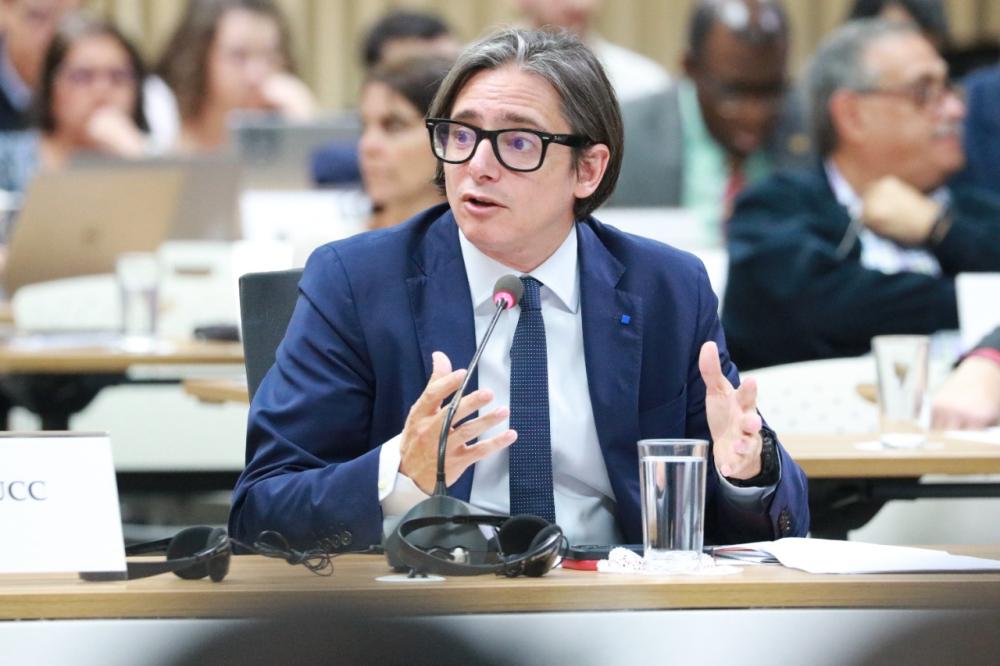Streamlining and uniting efforts among agrifood stakeholders, governments and funding institutions in Latin America and the Caribbean is key to boost agricultural development, adopt good practices and guarantee food security in the region, particularly given the serious global climate crisis.

San Jose, 23 September 2022 (IICA) – Streamlining and uniting efforts among agrifood stakeholders, governments and funding institutions in Latin America and the Caribbean is key to boost agricultural development, adopt good practices and guarantee food security in the region, particularly given the serious global climate crisis.
This was one of the statements made by Christian Asinelli, Corporate Vice President of Strategic Programming at the Development Bank of Latin America (CAF), during a meeting of ministers, secretaries and senior officials of Agriculture from across the hemisphere. Organized by the Inter-American Institute for Cooperation on Agriculture (IICA), the event was aimed at discussing the sector’s strategic role in addressing climate change, ahead of the upcoming Conference of the Parties (COP27) in November.
He added that, for this reason, the regional financial agency has decided that 40% of its operations will include components or specific projects related to climate change.
“It is great to hear about all the work that IICA and the ministers are undertaking in areas in which we could work together”, said Asinelli.
“We can come up with a global policy on how to work, how to improve projects and how to generate more funding. It is crucial to jointly generate impactful intervention projects that can improve the quality of life of Latin American and Caribbean people”, he added.
CAF’s Vice President reported that, through its funding strategy to drive the transition towards a sustainable agroindustry in the region, CAF will seek to consolidate partnerships with multilateral banks, agencies and civil society; foster sustainable intensification with special emphasis on investments and technological efforts across all value chains; and ensure that sectoral approaches align public policies and investments in agrifood systems.
CAF’s work agenda includes the development of credit lines with development banks and other financial entities to support small and medium-sized enterprises (SMEs) in the agriculture sector, as well as the identification of mechanisms to fund and implement projects with an agroecological approach, with a view to meeting the Sustainable Development Goals related to environmental and economic development.
“This agenda focuses on four aspects: agro-technology and digitalization, funding for agricultural SMEs, capitalization on projects with green funds or related to the climate agenda, and addressing the food insecurity and malnutrition crisis”, said the CAF official.
“We are working on the Latin American and Caribbean Initiative for Developing the Carbon Market, in which the agrifood sector will play a key role, given its capacity to transition from being a net emitter to a net sequestrator. By participating in the carbon credit market, the sector would be able to capitalize on carbon sequestration”, said Asinelli.
During the meeting, held at IICA Headquarters in Costa Rica, the national delegations of the countries of the Americas expressed the need to access resources to reduce the vulnerability of small-scale agriculture to extreme weather events and climate change, particularly in Central America and the Caribbean.
“We are very attuned to the countries’ priorities. We will analyze what their needs are and what we need to do in the coming years to identify funding opportunities and support public policies so that agriculture can become one of the key solutions to climate change in the world”, concluded the CAF executive.
More information:
Institutional Communication Division
comunicacion.institucional@iica.int










